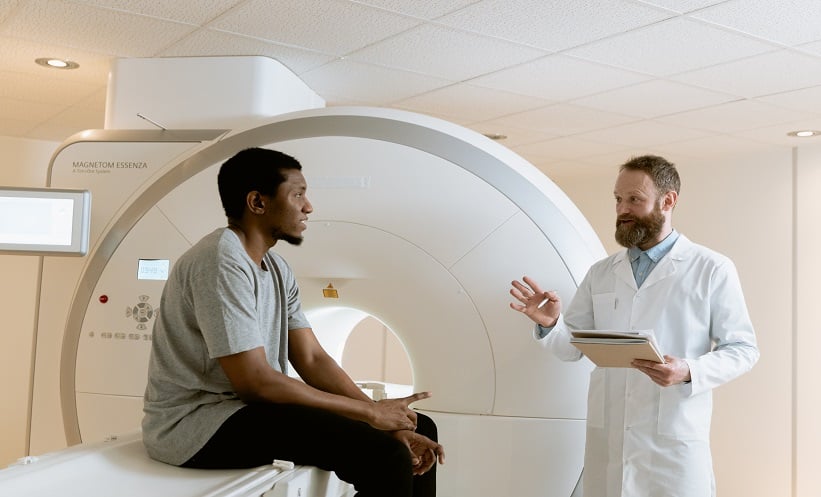RADICAL prostatectomy (RP) is used to treat approximately 40% of patients with localised prostate cancer (PCa). Current clinical models predicting biochemical recurrence following radical prostatectomy incorporate pre- and post-surgical input data. However, the ability to determine a patient’s risk using entirely pre-surgical information would be advantageous, enabling the patient to make informed decisions regarding treatment options and further clinical management. A research team therefore sought to compare the utility of pre-surgical staging information from MRI to post-surgical staging information from RP pathology in predicting biochemical recurrence.
The retrospective study included 604 patients with PCa who underwent prostate MRI prior to RP between June 2007–December 2018. MRI examinations for extra-prostatic extension and seminal vesicle invasion were assessed by a single genitourinary radiologist. Subsequently, the utility of extra-prostatic extension and seminal vesicle invasion on MRI and RP pathology for biochemical recurrence was assessed.
The authors found that extra-prostatic extension on pre-operation MRI was associated with a hazard ratio (HR) of 3.6 for biochemical recurrence, while extra-prostatic extension on RP pathology was associated with a HR of 5.0. MRI detected extra-prostatic extension also yielded a 3-year biochemical recurrence-free survival rate of 59%, compared to a survival rate of 84% for those without extra-prostatic extension.
Furthermore, patients who underwent extra-prostatic extension on post-operative pathology reported a recurrence-free survival rate of 58%, while those without extra-prostatic extension reported a survival rate of 89%. Seminal vesicle invasion on MRI was associated with a HR of 4.4 for biochemical recurrence of PCa, rising to 4.6 for seminal vesicle invasion on PR pathology.
Baris Turkbey, Molecular Imaging Branch of the National Cancer Institute and National Institutes of Health (NIH), Bethesda, Maryland, USA, concluded that: “The findings support incorporation of MRI findings into biochemical recurrence prediction models to help inform decisions before RP about post-RP monitoring and therapy, and even the decision to undergo RP.” Overall, the research team suggests that pre-surgical MRI-based staging performs comparably to post-surgical pathology staging meaning MRI could identify patients at high risk of biochemical recurrence, enabling informed early clinical decision making.








